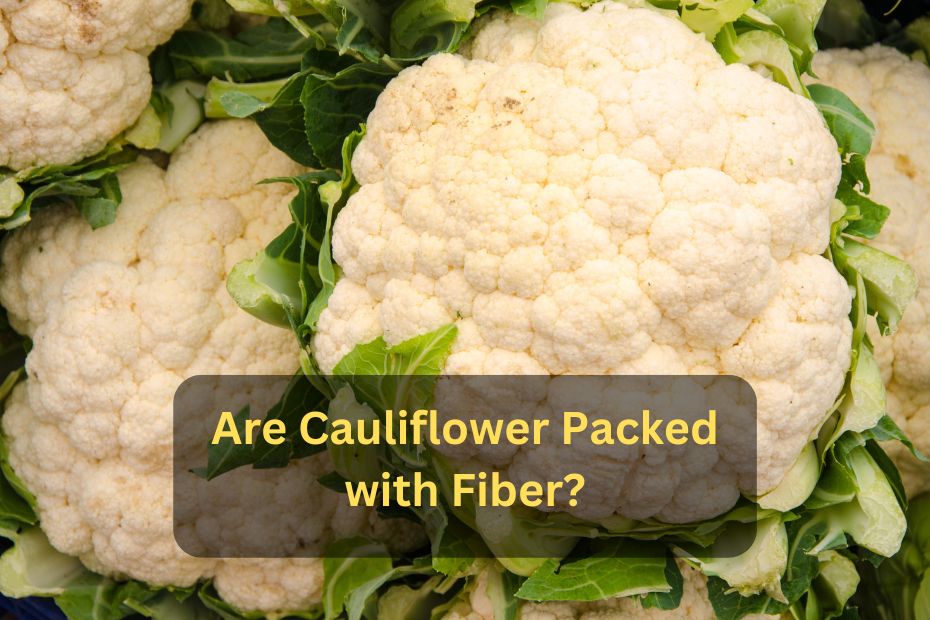If you’re looking for a versatile and nutritious vegetable to add to your diet, cauliflower might just be the answer. But are cauliflower packed with fiber? Let’s dive into the nutritional profile of this cruciferous vegetable and explore its fiber content along with its health benefits.
Nutritional Profile of Cauliflower
Cauliflower is a low-calorie vegetable that is rich in various nutrients, including fiber. A one-cup (100g) serving of raw cauliflower provides about 2 grams of dietary fiber, making it a decent source of this essential nutrient. Additionally, cauliflower contains vitamins C, K, and folate, as well as minerals like potassium and manganese.
Health Benefits of Fiber
Fiber is essential for maintaining a healthy digestive system and has numerous other health benefits. It aids in digestion, helps regulate blood sugar levels, promotes weight management, and supports heart health by reducing cholesterol levels.
Cauliflower as a Fiber Source
While cauliflower may not be the highest fiber vegetable, it still contributes to your daily fiber intake. Compared to other high-fiber foods like beans and legumes, cauliflower offers a lower but significant amount of fiber. Adding cauliflower to your meals can help increase your overall fiber consumption.
Myths and Misconceptions about Cauliflower
There are some misconceptions surrounding cauliflower, including the belief that it lacks nutritional value. However, cauliflower is a nutritious vegetable that can be part of a balanced diet. It may not be as colorful as other vegetables, but it still packs a nutritional punch.
How to Cook Cauliflower to Retain Fiber
To retain the fiber content of cauliflower, it’s best to use cooking methods that preserve its nutrients. Steaming or roasting cauliflower is preferable to boiling, as boiling can cause some of the nutrients, including fiber, to leach into the water.
Research and Studies on Cauliflower and Fiber
Several studies have investigated the nutritional content of cauliflower, including its fiber content. Research has shown that cauliflower is indeed a good source of fiber, contributing to overall dietary fiber intake.
Cauliflower Recipes High in Fiber
Incorporating cauliflower into your meals is easy and delicious. From cauliflower rice to cauliflower pizza crust, there are plenty of creative ways to enjoy this versatile vegetable while boosting your fiber intake.
Cauliflower and Gut Health
The fiber in cauliflower can also benefit gut health by promoting the growth of healthy gut bacteria. Including cauliflower in your diet can help support a diverse and balanced microbiome, which is essential for overall health and well-being.
Fiber Content in Different Varieties of Cauliflower
While the fiber content may vary slightly among different varieties of cauliflower, all types offer nutritional benefits. Choosing fresh, organic cauliflower and incorporating it into your meals regularly can help ensure you’re getting an adequate amount of fiber.
Cauliflower in Weight Loss Diets
Cauliflower is a popular choice for those following low-carb or keto diets due to its versatility and low-calorie content. Its high fiber content can also help promote feelings of fullness, making it a valuable addition to weight loss diets.
Incorporating Cauliflower into Special Diets
Whether you’re following a vegan, vegetarian, gluten-free, or paleo diet, cauliflower can be a versatile and nutritious addition to your meals. Its mild flavor and ability to mimic other ingredients make it a staple in many different dietary patterns.
Potential Side Effects of Excessive Cauliflower Consumption
While cauliflower is generally safe to eat, consuming large amounts may lead to digestive issues such as gas and bloating, especially for individuals with sensitive stomachs. It’s essential to listen to your body and consume cauliflower in moderation.
Conclusion
In conclusion, cauliflower is indeed packed with fiber, making it a valuable addition to any diet. Whether you’re looking to improve your digestive health, manage your weight, or simply enjoy a nutritious vegetable, cauliflower has you covered.
FAQs
What is the recommended daily intake of fiber?
The recommended daily intake of fiber varies depending on factors such as age, gender, and activity level. However, most health organizations recommend consuming between 25-38 grams of fiber per day.
Can I eat cauliflower raw to get the most fiber?
While raw cauliflower does contain fiber, cooking methods such as steaming or roasting can help break down the tough cell walls, making the fiber more accessible to your body.
Is cauliflower suitable for people with digestive issues?
Cauliflower is generally well-tolerated by most people, but individuals with certain digestive issues like irritable bowel syndrome (IBS) may experience discomfort from consuming cruciferous vegetables in large quantities.
How does cauliflower compare to broccoli in terms of fiber content?
Both cauliflower and broccoli are excellent sources of fiber, with similar nutritional profiles. However, the specific fiber content may vary slightly between the two vegetables.
Are there any disadvantages to eating too much cauliflower?
While cauliflower is a nutritious vegetable, consuming excessive amounts may lead to digestive discomfort for some individuals. It’s best to enjoy cauliflower as part of a balanced diet.
